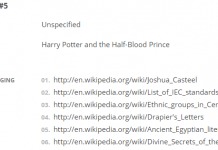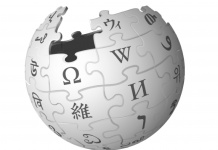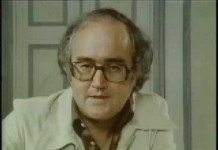 On The Bookseller’s blog, Piers Blofeld pontificates about Wikipedia, which is celebrating its 10th anniversary. Blofeld thinks the world would be better off if Wikipedia ceased to exist, because if it reaches its goal of codifying all human knowledge, that will mean the end of historians because there won’t be anything left for them to do.
On The Bookseller’s blog, Piers Blofeld pontificates about Wikipedia, which is celebrating its 10th anniversary. Blofeld thinks the world would be better off if Wikipedia ceased to exist, because if it reaches its goal of codifying all human knowledge, that will mean the end of historians because there won’t be anything left for them to do.
Blofeld does cop to using Wikipedia a lot himself, but says he doesn’t remember anything he reads there for more than five minutes after he reads it. He compares the ease of using Wikipedia to zookeepers finding their animals did better if they had to work for their food rather than just have it handed to them.
So although Wikipedia seems like just about the nicest idea anybody ever had there are serious grounds for wondering if the law of unintended consequences means that it will in fact be disastrous and given that if we are really honest it doesn’t do us all that much good as it is now, wouldn’t we all be better of if we just killed it off.
It seems to be a tradition that older generations view with alarm things that the younger generations devise. Everything was so much better in their day. Of course, Wikipedia is never likely to reach the stultified heights of codifying all human knowledge and making historians obsolete. It’s never going to be that kind of compendium. Like any encyclopedia, it will serve as a summary, a starting point, from which people can investigate primary sources. Blofeld might just as well advocate abolishing Encyclopaedia Britannica.
I think the world is much better off for having Wikipedia. When I need a broad overview of a topic, or am curious but not curious enough to do intensive research, that’s where I can go. It’s a universal quick reference—but for serious research, you have to look elsewhere.
Fortunately, Wikipedia is in no danger of dying out. And if it did vanish tomorrow, it wouldn’t be long before people got together to make another one.

































The world is MUCH better for having Wikipedia.
I am not sure if the world is better or worse for wikipedia.. what I do know is that historians have little to worry about. Wikipedia, even if it codifies all human knowledge (which as the article points out is extremely unlikely), it can only codify what is known. An historian’s job (or indeed the job of almost any research professional) is not to work with existing knowledge; their job is take evidence and build new knowledge with it. And of course in fields like history, a big part of the job is arguing about the meaning of evidence and interpretation. These are the sorts of things that Wikipedia can’t do.
One thing I really appreciate about Wikipedia, that I would not expect to find from other sources, is the multiple languages and inter-language links. They can help provide much more on topics that would not be covered in an English-only resource.